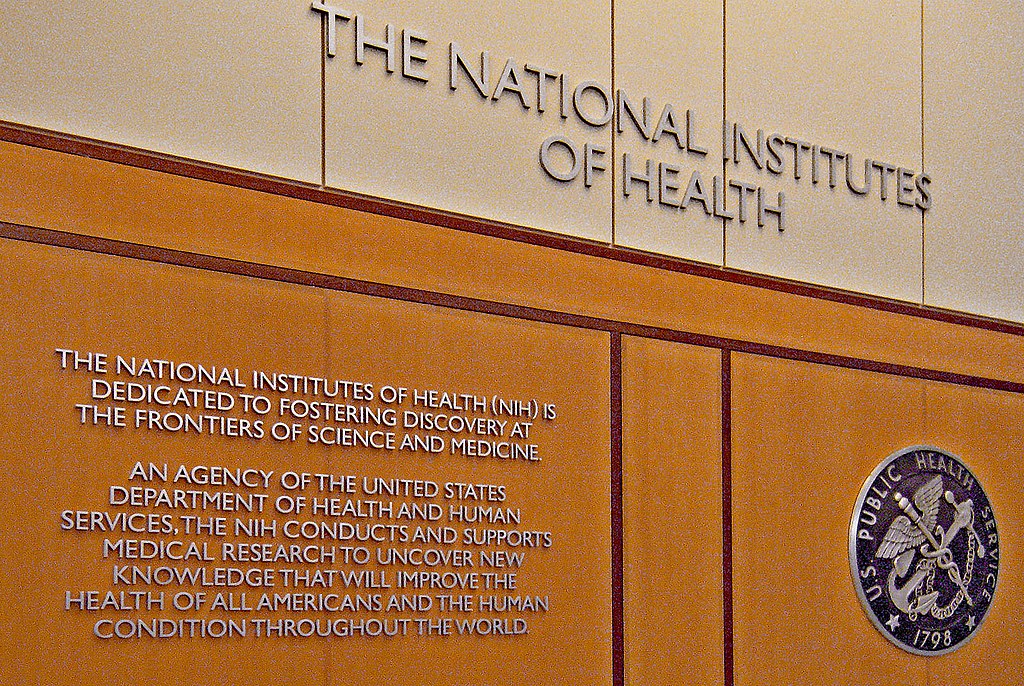The National Institutes of Health says it will put more resources toward addressing health care disparities among people with disabilities.
As part of this plan, the agency said it will officially designate people with disabilities as a health disparity population. This about-face came after backlash from advocates when the NIH first announced it did not plan to make the designation.
Bonnielin Swenor, director of the Johns Hopkins University Disability Health Research Center, joined the Standard to share more.
This transcript has been edited lightly for clarity:
Texas Standard: To start, I was hoping you could tell us what it means for a group to be designated as a health disparity population. What’s the significance?
Bonnielin Swenor: So what this means is it opens up an opportunity for more research and funding in addressing health inequities and health disparities for any population that has this designation. So up until now, people with disabilities didn’t have access to a lot of research funding to address the known health inequities that the disability community faces. This designation changes that.
Could you say more about those inequities?
Yeah. So we have really mountains of data documenting that people with disabilities face greater barriers to health care than people without disabilities; have lower rates of preventative screening for things like cancer. And despite that evidence, there hasn’t been funding or support to develop strategies to address those barriers.
» Texas Standard special report: The State of Disability in Texas
Well, given the data, why did the NIH originally say they didn’t want to make this designation? Did they offer any explanation?
In their public meeting, the committee that gave this advice had some hesitancy because they weren’t sure how to define the disability community. And they made some indication that they felt that everyone in the disability community would have to face a health disparity for the designation to be applied. The community of advocates and people with disabilities pushed back on that, as you indicated. And the designation was then given.
They changed their mind on the basis of that public pressure, do you believe?
Yeah, so, hard to know on the outside the exact driving force. But in reality, that recommendation to reject giving the designation was only advisory in nature. It really was up to the director of the National Institute on Minority Health and Health Disparity, and that advisory committee was reviewing information and then giving advice to that director.
So there was a tight window of time where that director could either accept or reject that advice. And that’s when the disability community stepped up and advocated pretty overwhelmingly, I would say, and ultimately the director ended up giving the designation.
Bonnielin, where do you come down on this? Do you think making this designation was the right move?
Absolutely. You know, I was part of the effort in advocating. I was part of a committee even before all of this took place with a lot of my colleagues advising the NIH to take this designation under consideration. I am a person with a disability myself. I do work in addressing the health care and the health inequities that impact people with disabilities, and this is much needed.
» GET MORE NEWS FROM AROUND THE STATE: Sign up for Texas Standard’s weekly newsletters
Is there a substantial argument not to make this designation that you have heard?
You know, that’s a really great question. I think the the argument honestly comes down to biased views of people with disabilities. It comes down to views that people with disabilities aren’t valued members of society, and we shouldn’t invest in addressing the health inequities that people with disabilities face.
But the reality is that people with disabilities are the largest minority group in the United States, in the world – 27% of adults have a disability. And we know that actually is even an underestimate and is growing. And so it just makes good sense to start thinking about people with disabilities and these issues of health equity because it’s such a large portion of our population. But that takes addressing long-held stereotypes around disability to get there.
I know that there are people with disabilities listening right now wondering, okay, well, what sort of impact is this going to have on my life, and how soon might I feel that impact? And what would you say to them?
I think the immediate impact is it’s already opening doors for research funding to start to develop strategies and interventions and hopefully lead to better policy to address the barriers to getting health care and to thriving in society. Things we haven’t been able to do without the funding.
But I think a bigger picture in the longer term is I hope that this designation calls attention to the negative ways that people with disabilities are viewed and excluded from society and starts a bigger conversation around why that absolutely has to change.













